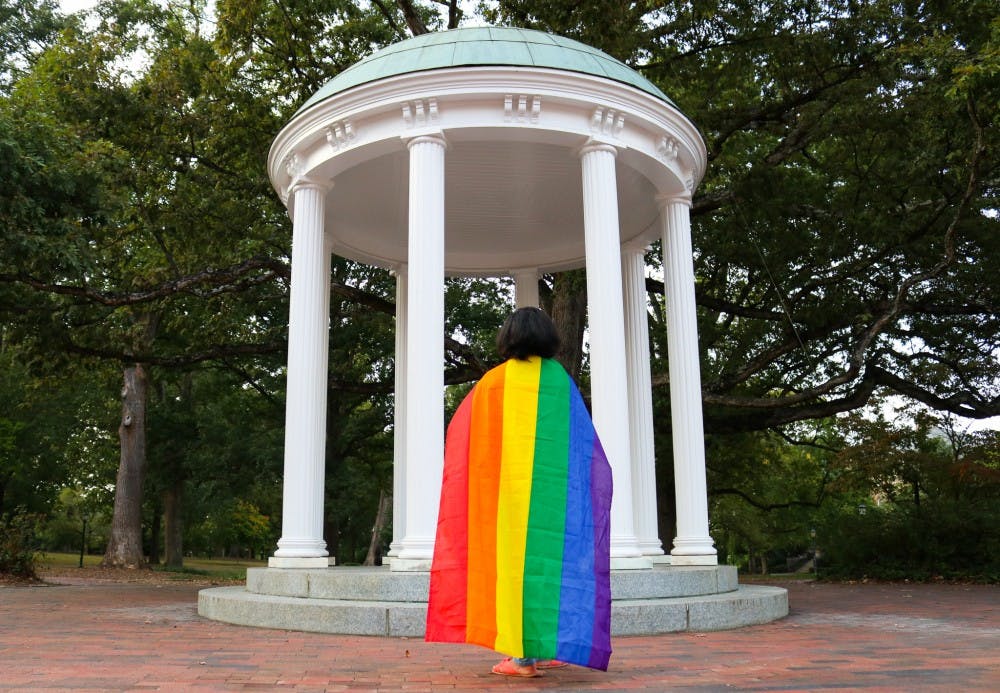This October, Q-Connect will be collaborating with the Queer Straight Alliance, a program within the UNC School of Medicine, to increase health guidance for LGBTQ+ individuals on campus. Together, they will host a conversation with the North Carolina School of Science and Mathematics, covering a wide range of issues on LGBTQ+-positive culture and education.
Co-president of QSA, Jean-Luc Banks, said he hopes the event will be a space for medical students to ask questions. His goal, Banks said, is to foster an environment that is inclusive of LGBTQ+-centric education, while recognizing LGBTQ+ patients and physicians.
“I think that getting involved in medical school as future advocates for this population is necessary,” Nickel said. “They will be able to see the impact that it would have to have as an affirming health care provider — the impact that it would have on conversion therapy, the impact that it would have on affirming mental health support.”
The partnership is meant to be mutually beneficial, allowing medical students to also enhance their training.
“Medical students — they are the change makers for LGBT youth and the LGBT population as health care goes,” Nickel said. “So I think that they can make a great impact for our students in addition to the future generations.”
'With similar identities, we understand'
Distance is a factor that can limit Q-Connect’s outreach. Nickel said he recognizes the extreme need for LGBTQ+ positive resources in rural North Carolina areas. Many North Carolina high schools don’t have active gay-straight alliance, GSA, programs, and religiously-motivated conversion therapy continues to affect young people.
Ramsey himself comes from a background without diverse or open discussions about sexuality.
“I’m from a small town in North Carolina without those resources,” he said. “Having that information would have helped me kickstart myself."
Ramsey said that his high school stripped the LGBTQ+ narrative from the curriculum.
Still, the individual rewards of working with Q-Connect inspire Nickel and Ramsey to move forward, because Q-Connect is about bridging the gap between high school and college students who share a common LGBTQ+ experience.
“It’s powerful because most of the students in our organization are LGBT-identifying,” Nickel said. “We know the experiences that are specific to this population so we can better help this population. It’s a really great perspective that we have. With similar identities, we understand, we can empathize with them.”
To get the day's news and headlines in your inbox each morning, sign up for our email newsletters.
Looking forward
Nickel said he only sees the program growing from the joint QSA forum at the North Carolina School of Science and Mathematics to discuss sex education and gender sexuality affirming treatment protocols.
“I want to get as many people involved as possible, no matter what identities they have," Nickel said. “In this organization, I think we are able to make a lot of great change. No matter what identity you have, we need you. We are looking to make changes for LGBT youth.”
Now covering medical education, Ramsey and Nickel’s Q-Connect and OUTreach’s mentorship forecasts a more supportive future for LGBTQ+ students on campus and in nearby high schools. Because, as Banks said, science is advancing.
"It’s OK to be gay in medicine," he said.
@alliemkelly
university@dailytarheel.com



